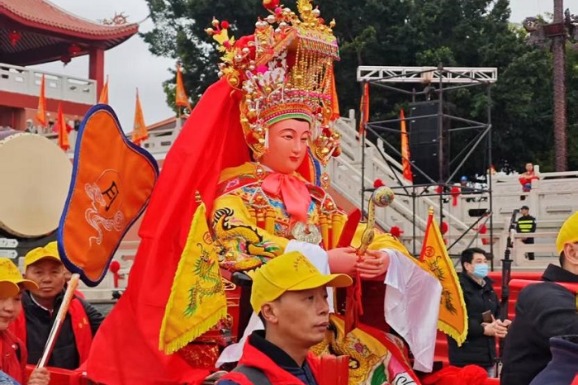CE: HK mulls voting plan for HK residents on mainland

The government is mulling a plan to allow Hong Kong residents on the Chinese mainland to vote at the city's checkpoints for the upcoming Legislative Council election, Chief Executive Carrie Lam Cheng Yuet-ngor said on Tuesday.
The arrangement, which is still under discussion with the authorities on the mainland, would allow Hong Kong electors who reside in the mainland to cast their votes on SAR land on voting day and return to the mainland without being subjected to compulsory quarantine, Lam revealed.
Hong Kong will hold the Legislative Council General Election on Dec 19, when over 4.4 million registered voters will select 90 lawmakers to serve for the next four years.
Lam said the arrangement is aligned with Hong Kong laws that require the election and related behaviors to be taken within SAR territory, hoping to facilitate electors living in the mainland, especially Guangdong province.
According to the recent national population census released in May, about 370,000 Hong Kong residents – about 5 percent of Hong Kong's population, live on the mainland.
Registration for such electors will be carried out to ascertain how many would need such service at the checkpoints of Shenzhen Bay and Hong Kong-Zhuhai-Macao Bridge, the SAR's two currently available land ports with the mainland, after the plan was made public, she added.
Lam said the government has mobilized over 36,000 officers, mostly current civil servants as well as some retired civil servants and people familiar with election operations, to ensure the election will be conducted smoothly.
Lam also warned that any activities in public that would encourage voters to boycott elections or spoil ballots risk violating the law, according to the Elections (Corrupt and Illegal Conduct) Ordinance.
She was responding to a recent call by some people to boycott the Legislative Council election. The law enforcement agencies will take robust actions against such activities if any were noticed, added Lam.
The ordinance stipulates that inciting others "not to vote or to cast invalid votes" via public activities during an election period is illegal, and those in violation could be held liable via imprisonment of up to three years.
The activities of incitement could be any form of communication to the public or conduct observable by the public, including speaking, writing, displaying notices or other recorded material, and the distribution or dissemination of any matter to the public, according to the law.
- Guardians of ancient trees bridge past and future
- Beijing faces unusually severe winds on Saturday
- Former Hainan official expelled for disciplinary and legal violations
- CAAS launches initiative to combat soybean pests and diseases
- China's icebreaker Xuelong returns to Shanghai after fruitful Antarctic survey
- Shanghai launches all-round service center for foreign talents



































